Summary
Presented by the Permanent Missions of Kiribati and Marshall Islands to the UN, and the Pacific Island Forum Secretariat, the event highlighted Kiribati and Marshall Islands’ ongoing efforts to address climate change, as well as commitments to accelerating actions for achieving the Sustainable Development Goals (SDGs) and the SAMOA Pathway. The meeting also featured voices of youth from the two countries, who presented ongoing projects, programs, and initiatives aimed at securing their future.
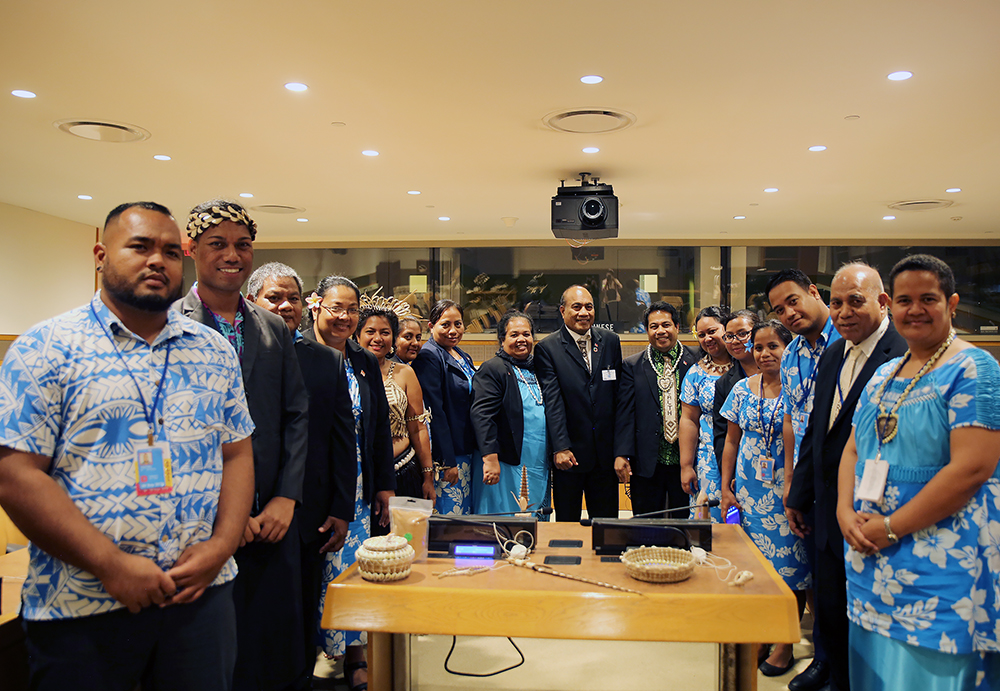
Above photo: Team Kiribati with Taneti Maamau, President of Kiribati
- Taneti Maamau, President, Kiribati, announced the launch of the Kiribati Joint Implementation Plan for Climate Change and Disaster Risk Management 2019-2028.
- John M. Silk, Minister of Foreign Affairs, Marshall Islands, highlighted this week’s launch of the Pacific Blue Shipping Partnership by Fiji, Marshall Islands, Samoa, Vanuatu, the Solomon Islands, and Tuvalu, which aims to reduce Pacific shipping’s CO2 emissions by 40% by 2030.
- Dame Meg Taylor, Secretary-General, Pacific Islands Forum, noted the creation of a Pacific Resilience Facility aimed at helping communities cope with the impact of climate change.
Opening the event, Teburoro Tito, Permanent Representative of Kiribati to the UN, spoke about how Kiribati’s fragile ecosystems are increasingly damaged and destroyed by climate change. He welcomed Kiribati’s youth and invited them to express their needs and plans.
Taneti Maamau, President, Kiribati, highlighted the importance of building partnerships that help address the common challenges that the region is facing. He noted that Kiribati is implementing its climate change-related plans through a coordinated national strategy and has recently launched the Kiribati Joint Implementation Plan for Climate Change and Disaster Risk Management 2019-2028 (KJIP). He further presented measures for rejuvenating Kiribati’s tuna stocks and fisheries.
The goal of the KJIP, he said, is to increase resilience to climate change and disaster risks using a “whole-of-country” approach by focusing on mainstreaming and coordination across sectors and scales of governance. He explained that the KJIP identifies 12 strategies and associated priority climate change and disaster risk management actions for the next nine years (2019-2028) based on existing policies and strategies. Ultimately, he noted, the KJIP aims to uphold and safeguard Kiribati’s unique culture, heritage, and identity through enhanced resilience and sustainable development. He concluded by underlining that Kiribati “is not sinking, but fighting.” Between 2017 and 2019, the KJIP was reviewed and revised with the support of the NAP Global Network’s U.S. In-Country Support Program for Kiribati.
John M. Silk, Minister of Foreign Affairs, Marshall Islands, said the Marshall Islands and Ireland are spearheading the Kwon-Gesh Climate Pledge to include young people in climate action policy creation and invited all governments to join the initiative. He noted that small island states are on the frontlines of climate change and quoted Jason Momoa, saying that “when the frontline is gone, we are doomed.” He noted that the Marshall Islands is facing “the devastating loss” of its home because of sea-level rise and called on all countries to reduce CO2 emissions and become carbon-neutral by 2050.
Silk said that the Marshall Islands was the first and only country that submitted an updated, more ambitious nationally determined contribution (NDC) at the Climate Vulnerable Forum in 2018. He said that the Pacific Blue Shipping Partnership, launched during the 2019 Climate Week by Fiji, Marshall Islands, Samoa, Vanuatu, the Solomon Islands, and Tuvalu, aims to reduce Pacific shipping’s CO2 emissions by 40% by 2030.
Dame Meg Taylor, Secretary-General, Pacific Islands Forum, stressed that climate change is the greatest security threat that islands are facing, which is both an environmental and human security threat and has an enormous geopolitical impact in terms of governments’ priorities. She said Pacific islands need more financial and capacity building support from partners, particularly to build data capacity for both assessing the islands’ challenges and ensuring accountability for donors’ support. She noted the creation of a Pacific Resilience Facility aimed at helping communities cope with the impact of climate change, adding that the UN Secretary-General will support a pledging conference for the Pacific Resilience Facility as USD 1.5 billion are needed for the first five years.
Selina Neirok Leem, youth representative from the Marshall Islands, said youth are creating three types of camps for youth: science; arts and climate change; and leadership. The camps will help youth to connect, brainstorm, and strategize on actions that youth could take to address the effects of climate change on the islands. The arts camps are meant to help youth cope with the trauma caused by the impact of climate change on their homes and communities, she noted.
Aberaam Tata, youth representative from Kiribati, said young people in Kiribati aspire to a peaceful, safe, and healthy future on the island, and to be empowered in a sustainable way to take action and build the lives they need. He stressed that climate change is a huge threat not only to the country, but to the culture of Kiribati. He noted that youth’s civic engagement in Kiribati is focused on building young people’s capacity to make a difference in the fight against climate change. In a video, other youth from Kiribati urged global leaders to help them keep their countries and homes from disappearing by curbing global CO2 emissions.
Pacula Jesary Kilifi, Miss Kiribati 2019, presented her efforts to serve as a national role model for Kiribati’s children and youth by promoting environmentally-responsible behaviors and organizing nature cleanups.
In the ensuing discussion, Norway highlighted that even though the ocean sets us apart, the ocean also binds us together, and thus there is a need to create coalitions to protect it. He mentioned Norway’s efforts to change the rules of development cooperation by changing the rules of graduation from least developed country (LDC) status so that countries prone to natural disasters no longer risk losing access to concessional financing. Ireland presented its new international development policy, which puts climate finance at the core and will support small islands. Australia expressed readiness to partner with small islands states to assist them with their challenges.
Kiribati highlighted that small island states have only 8 years left in which a global reduction of CO2 emissions could save their livelihoods. Tuvalu emphasized that international powers are competing for the marine protein sources of islanders, which are already dwindling because of climate change. He called on countries that are candidates for the UN Security Council to recognize climate change as a security issue and to appoint a Special Envoy for Climate Change and Security.
Canada said it contributes USD 2.6 billion to developing countries to fight climate change and expressed Canada’s readiness to work with the Pacific region to help it tackle climate change. New Zealand highlighted its work on ensuring strong baselines for maritime zones under the UN Convention for the Law of the Sea (UNCLOS), so they are protected and remain maritime zones. US presented its work on solid waste management to limit marine debris, as well as its knowledge-sharing initiatives aimed at promoting best practices in solid management among other large economies, so they can limit their marine debris as well.
Photos by IISD/ENB | Francis Dejon
For photo reprint permissions, please follow instructions at our Attribution Regulations for Meeting Photo Usage Page.
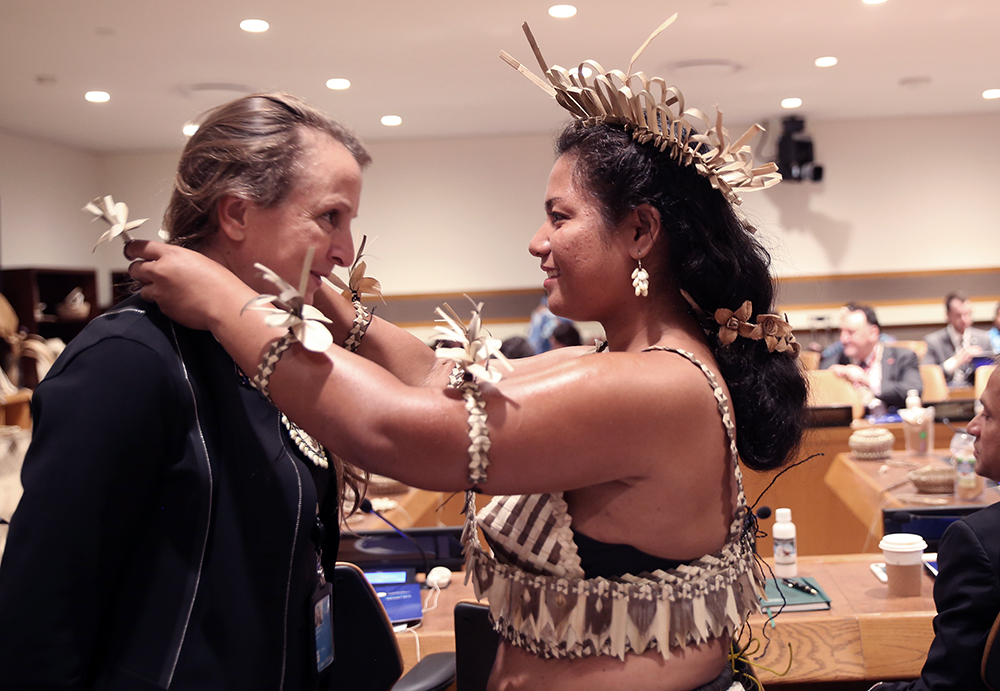
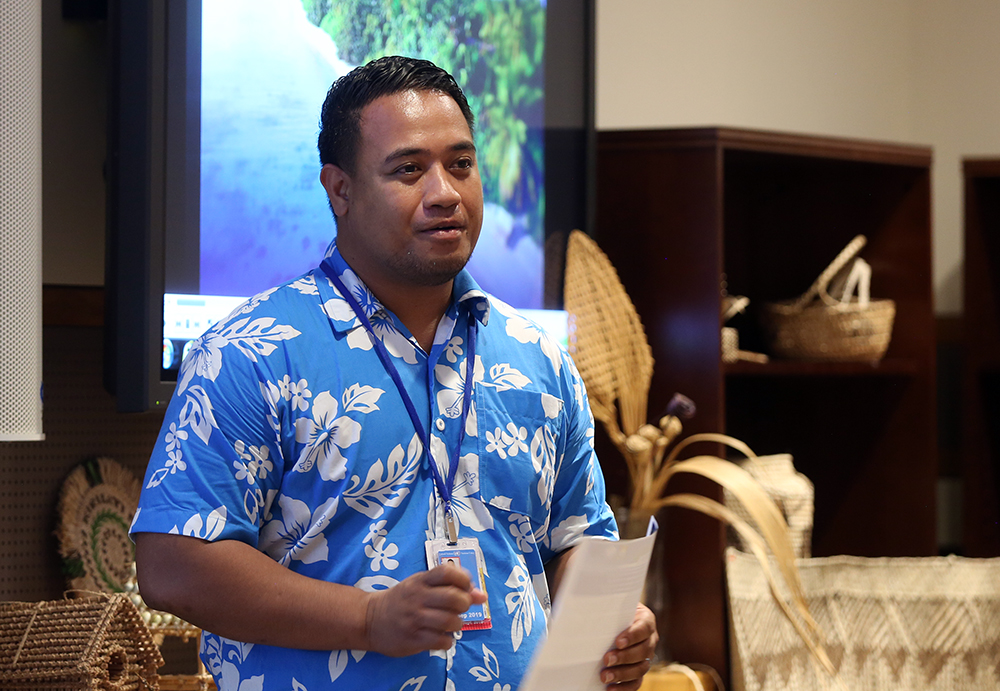
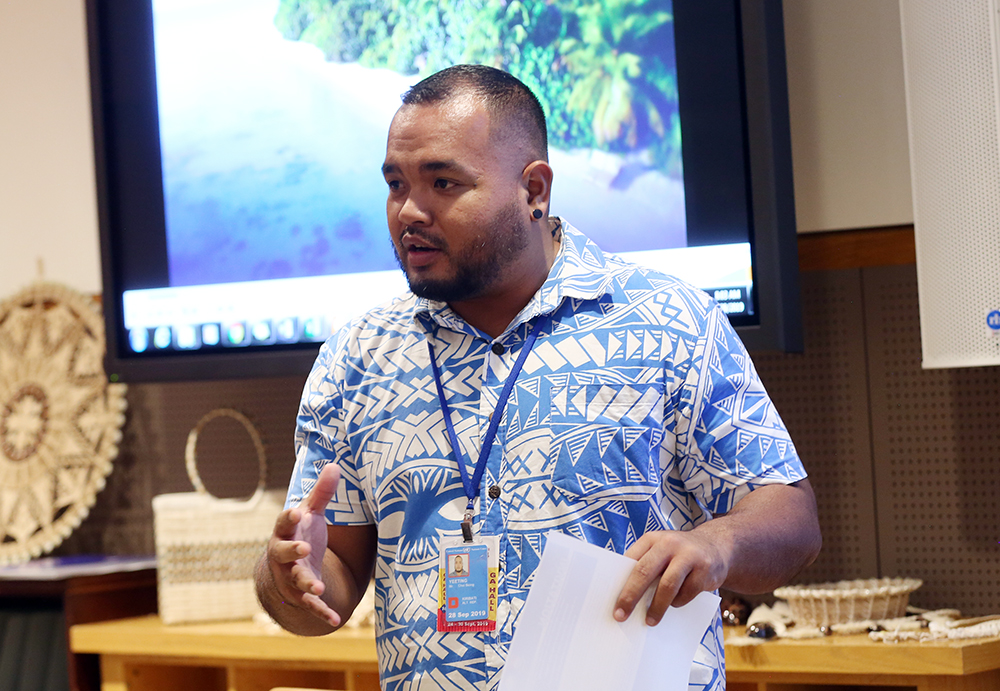
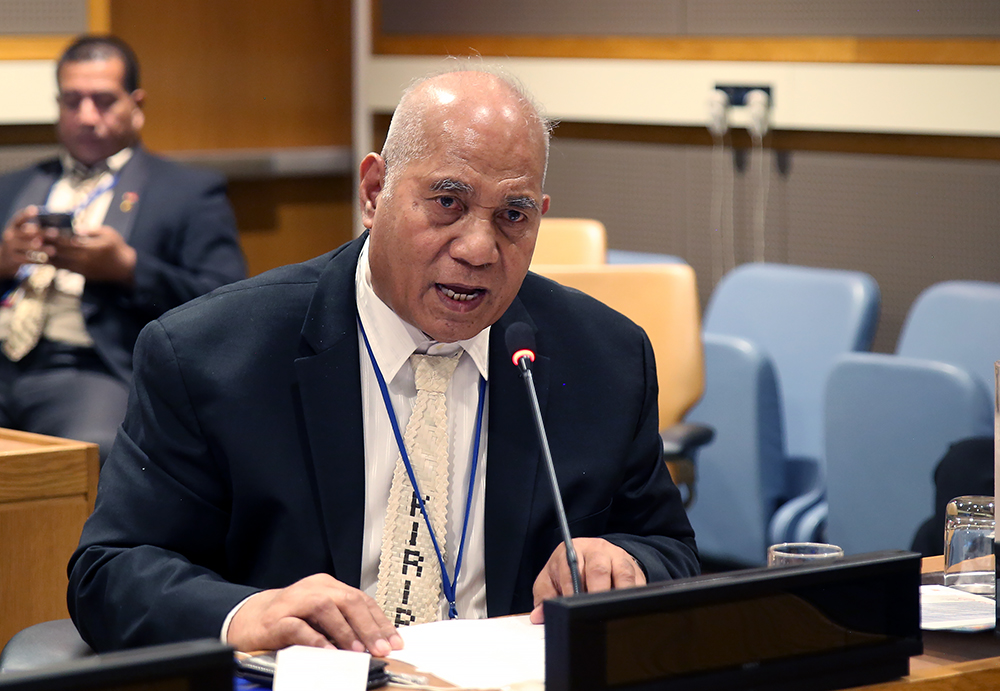
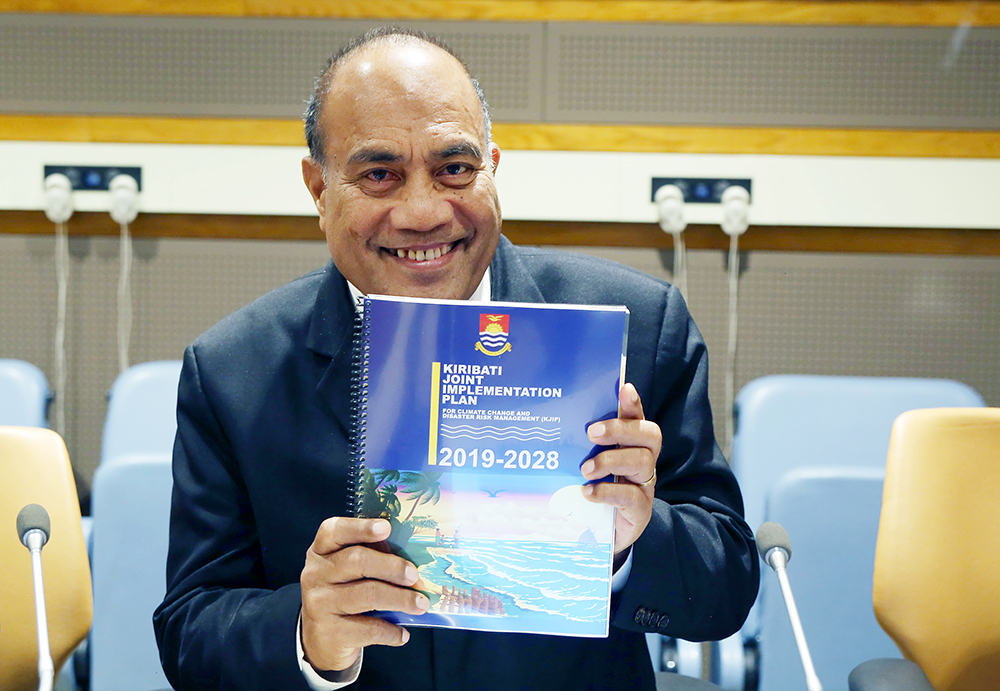
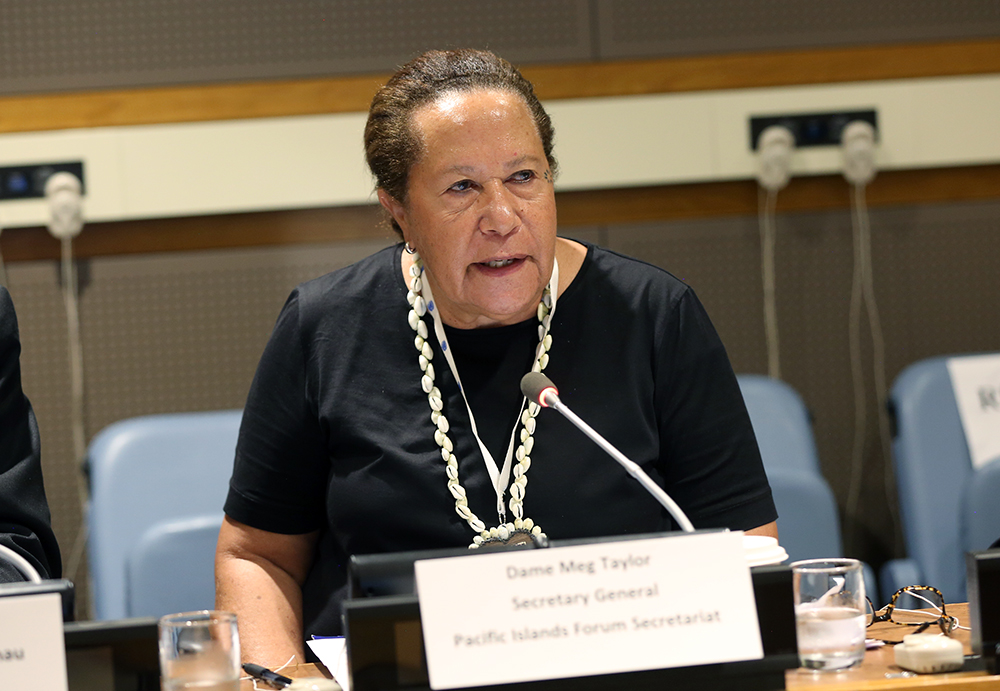
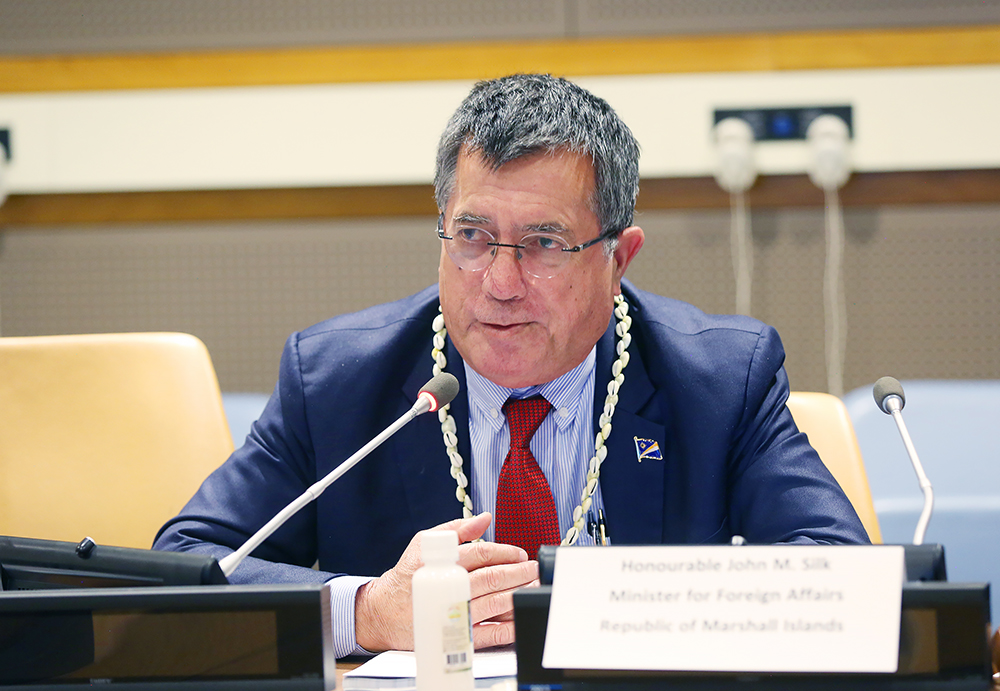

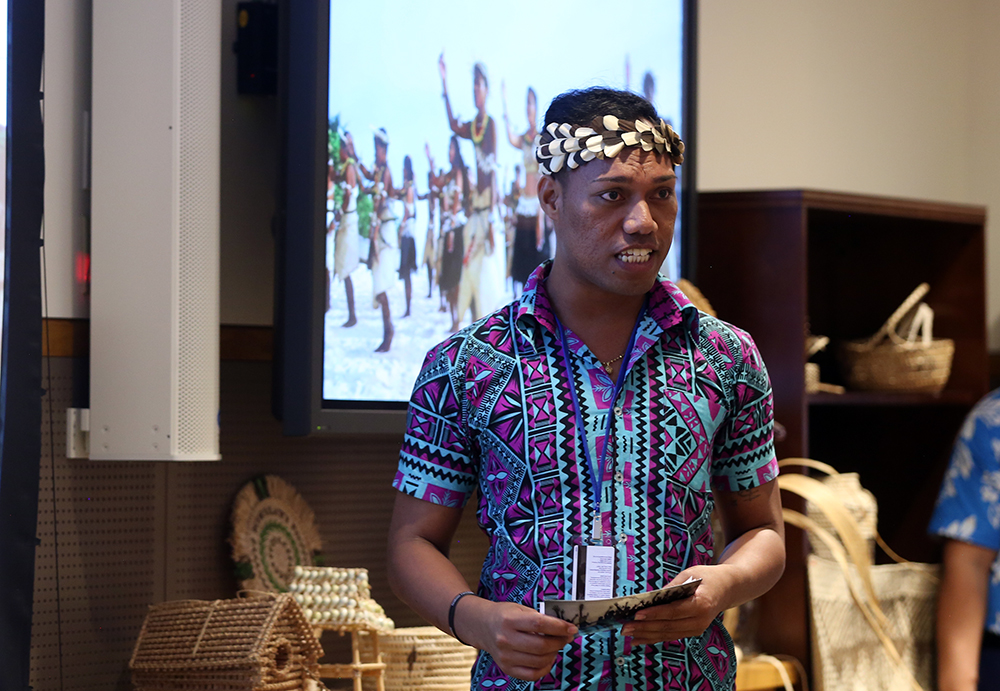
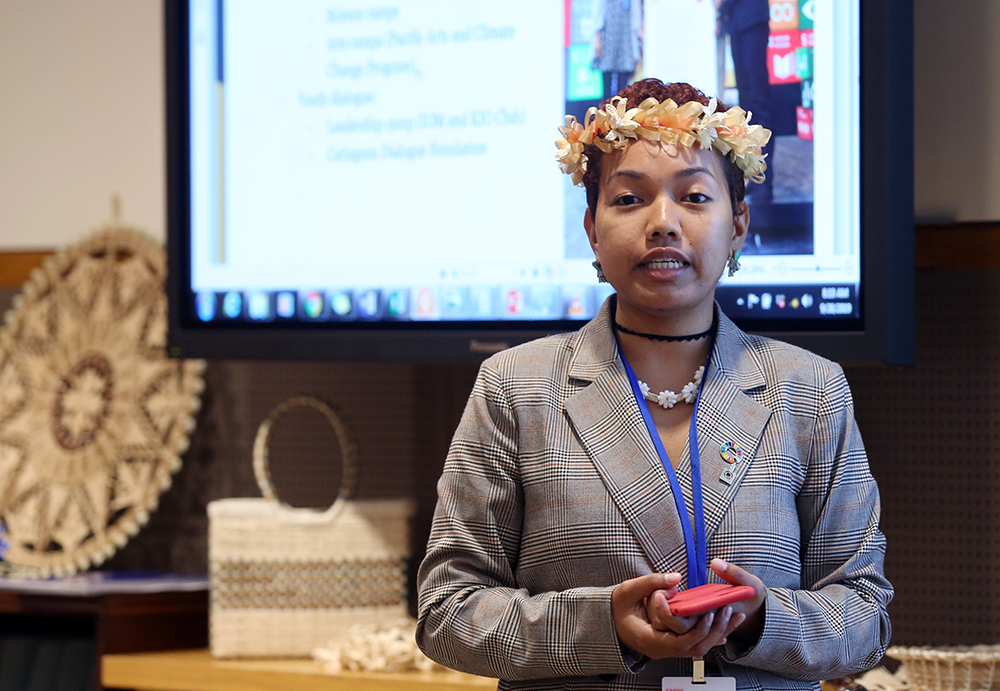
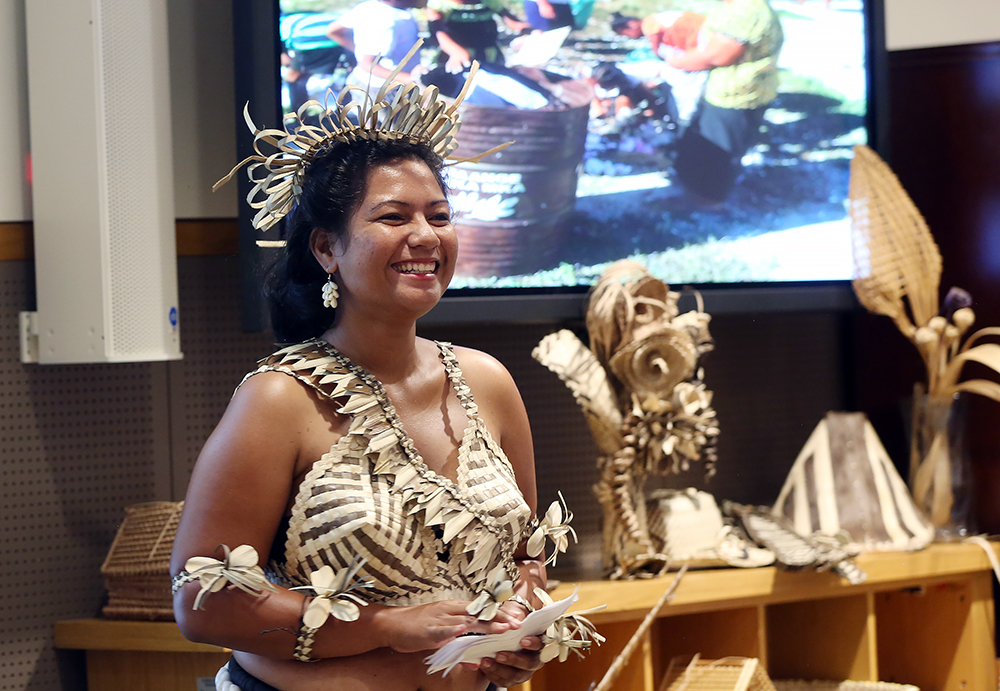
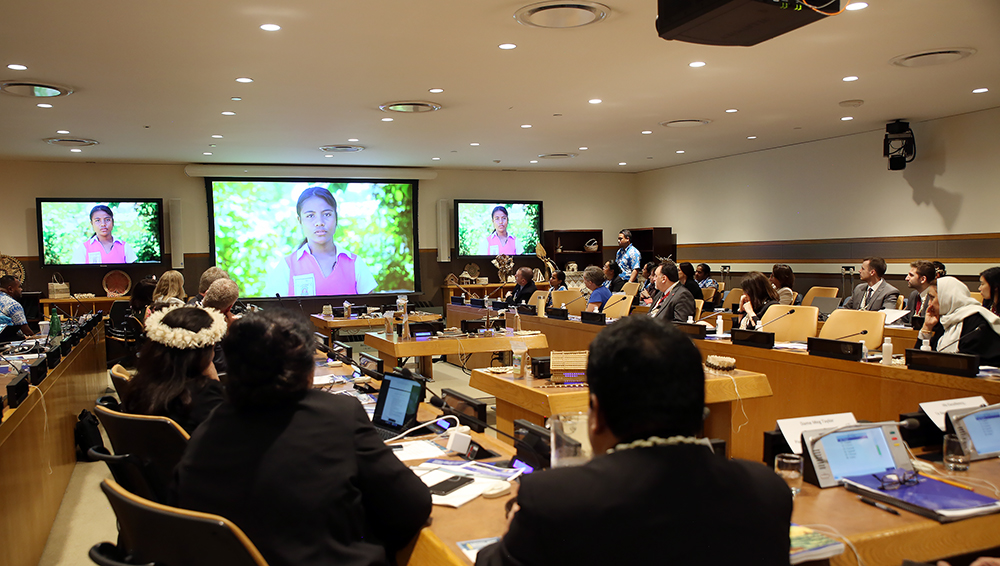
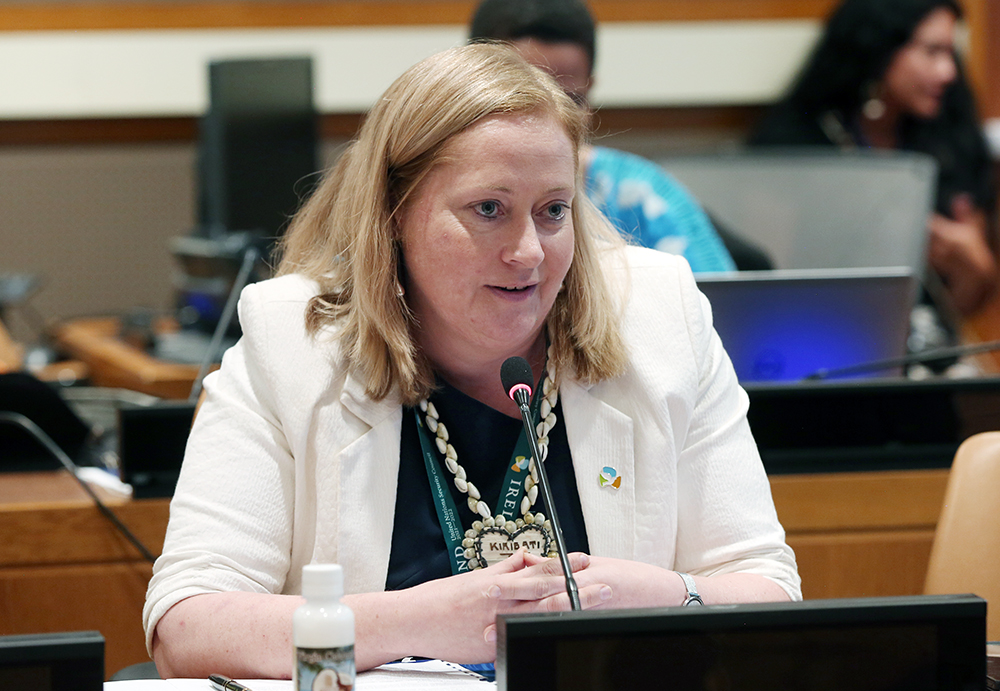
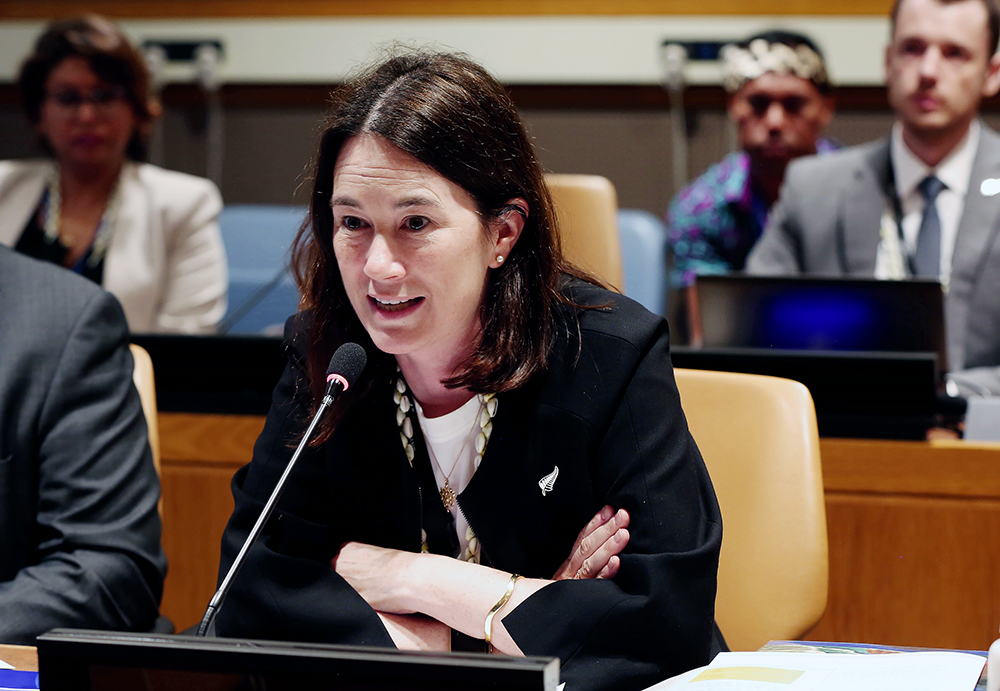
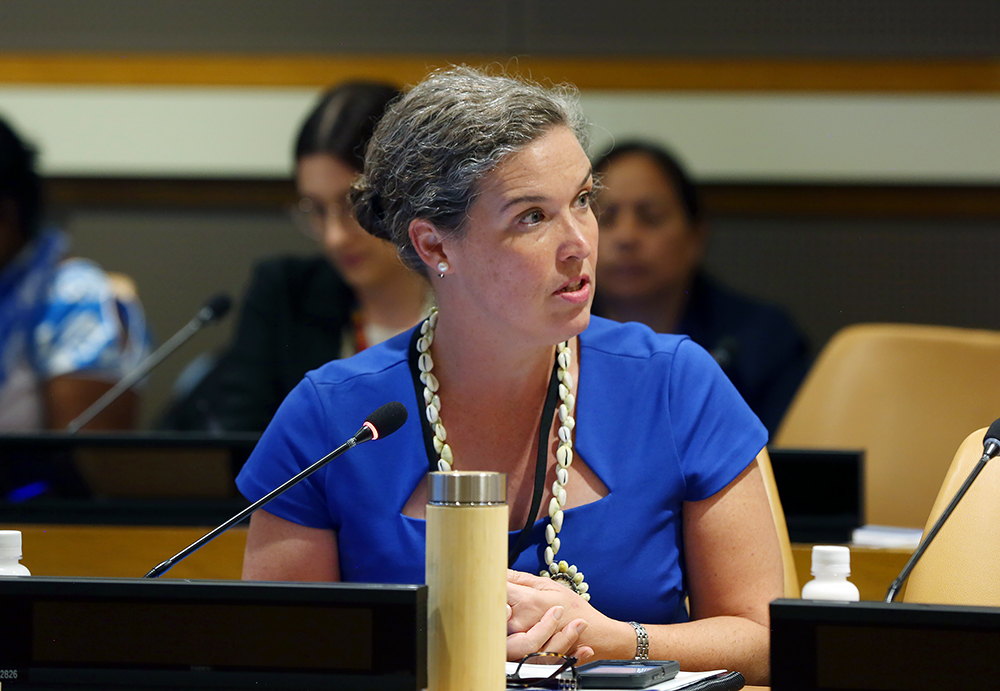
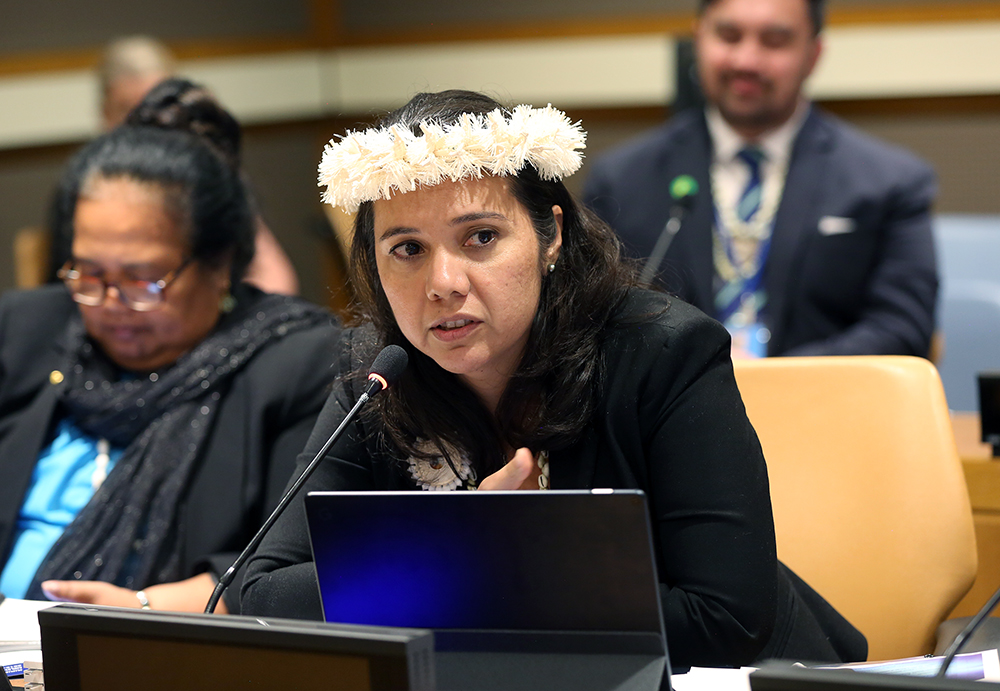
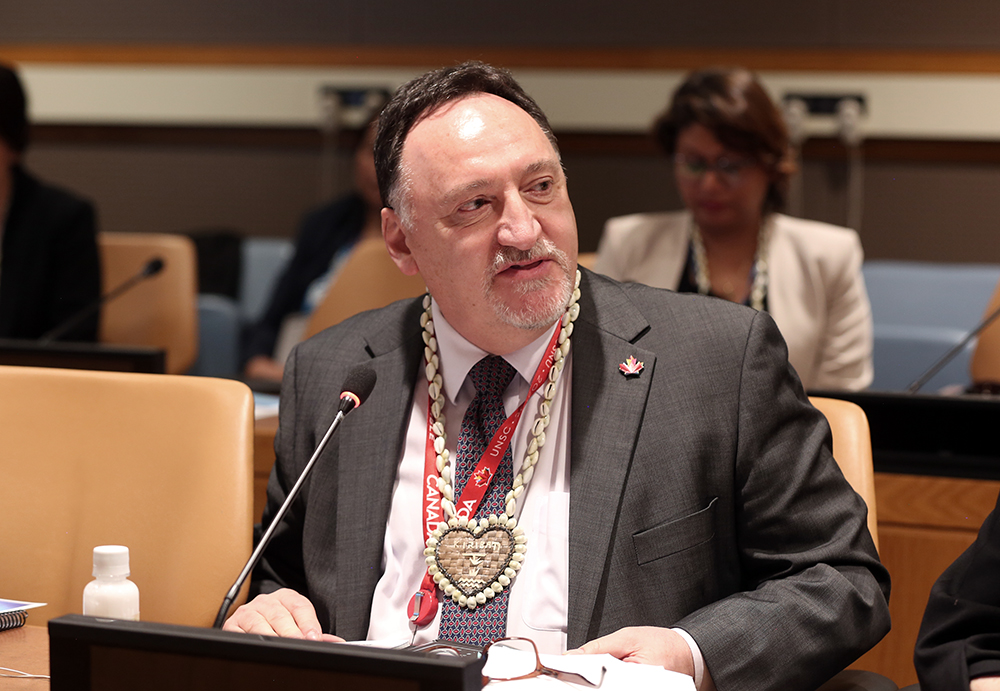
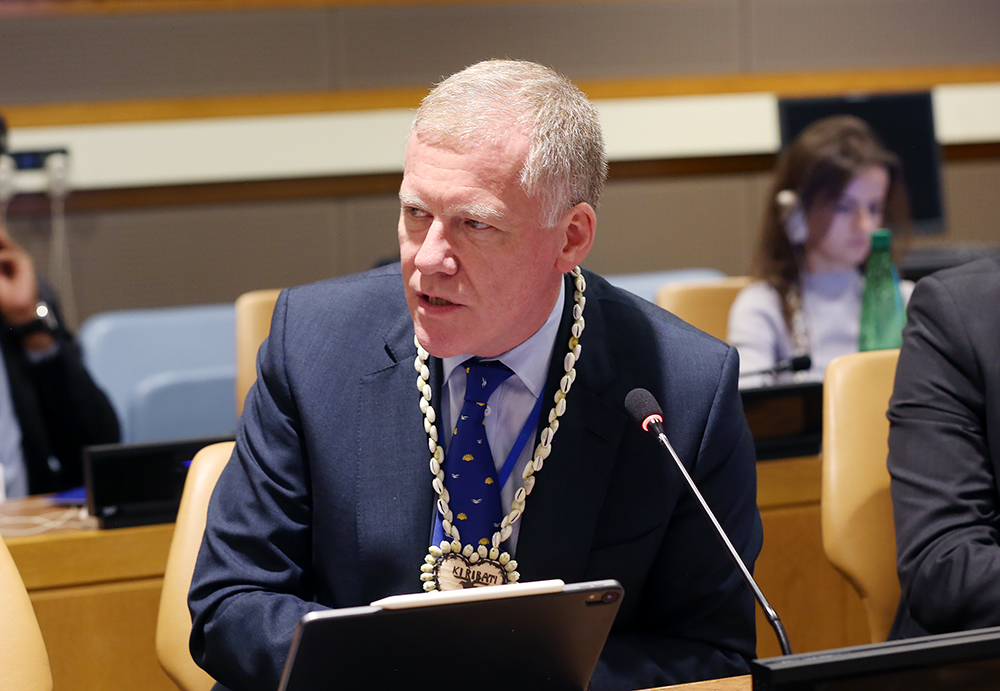
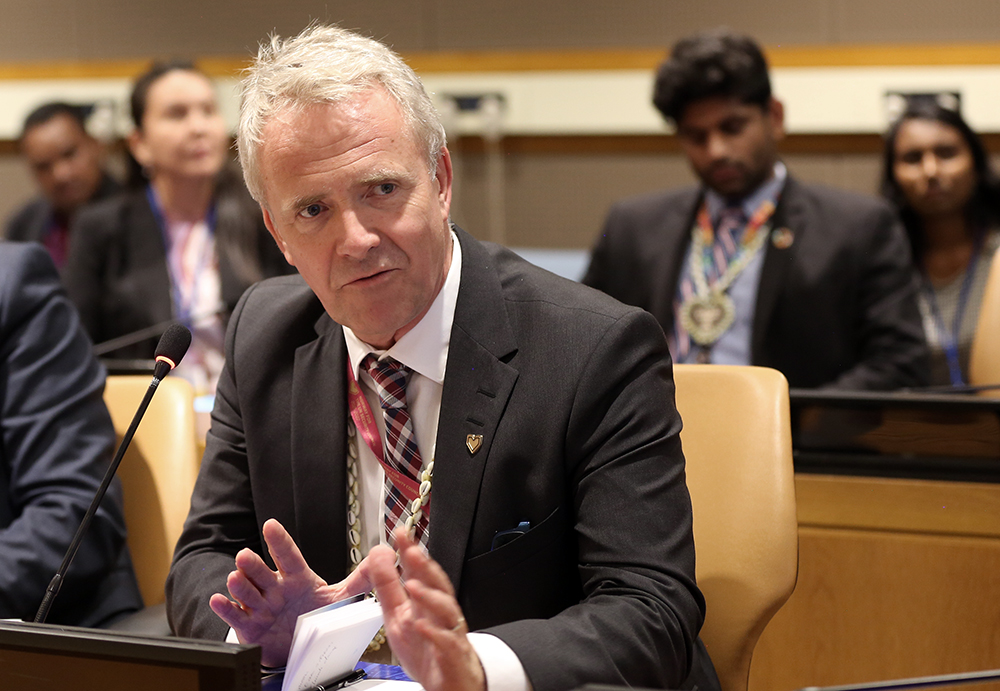
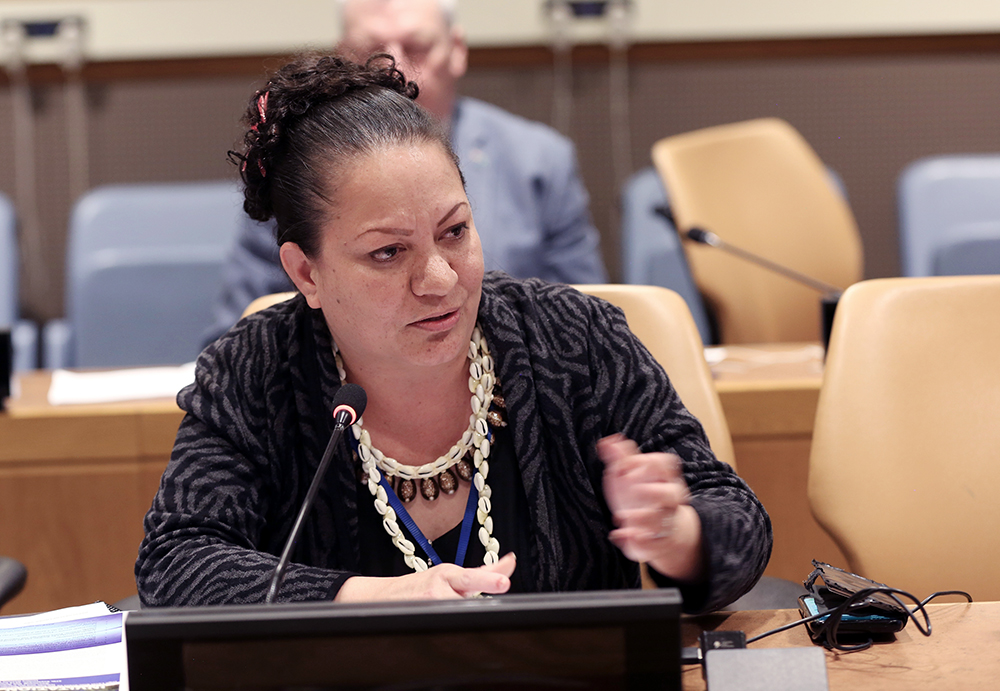
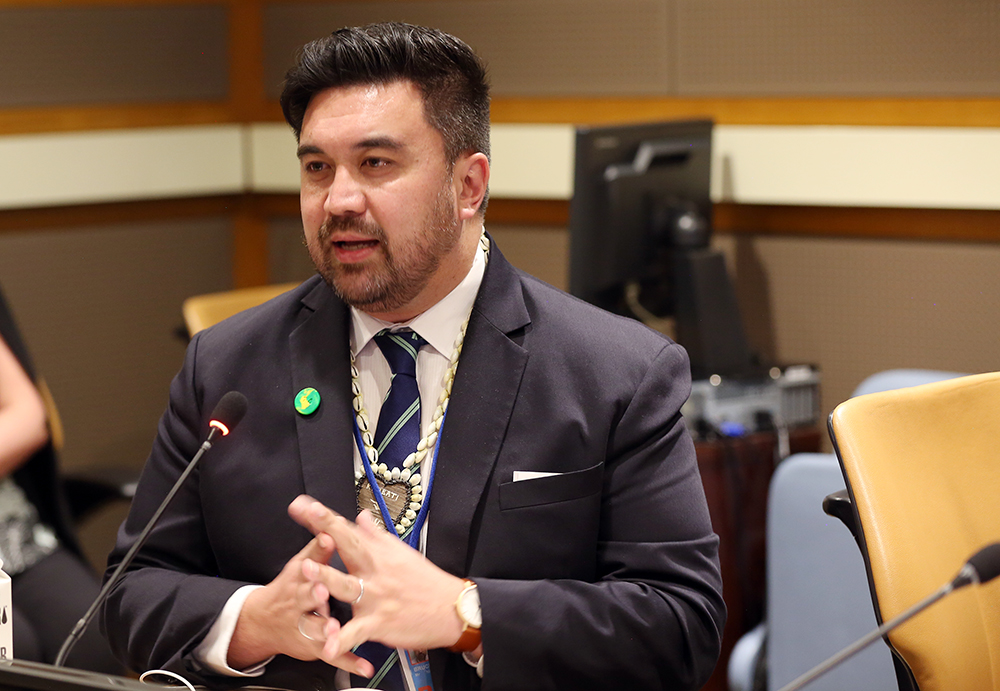
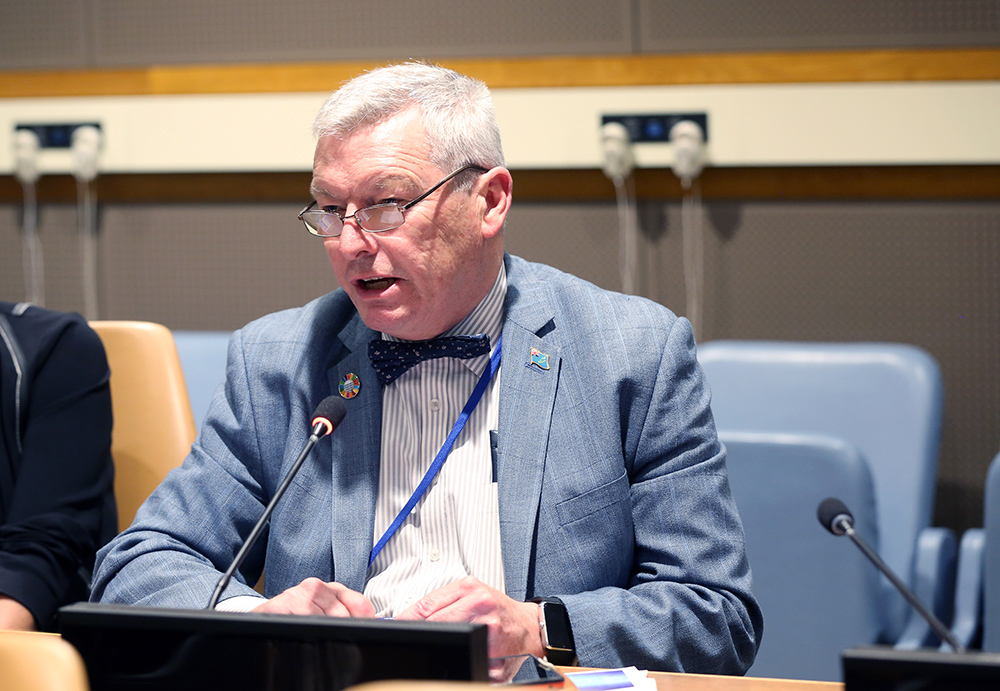
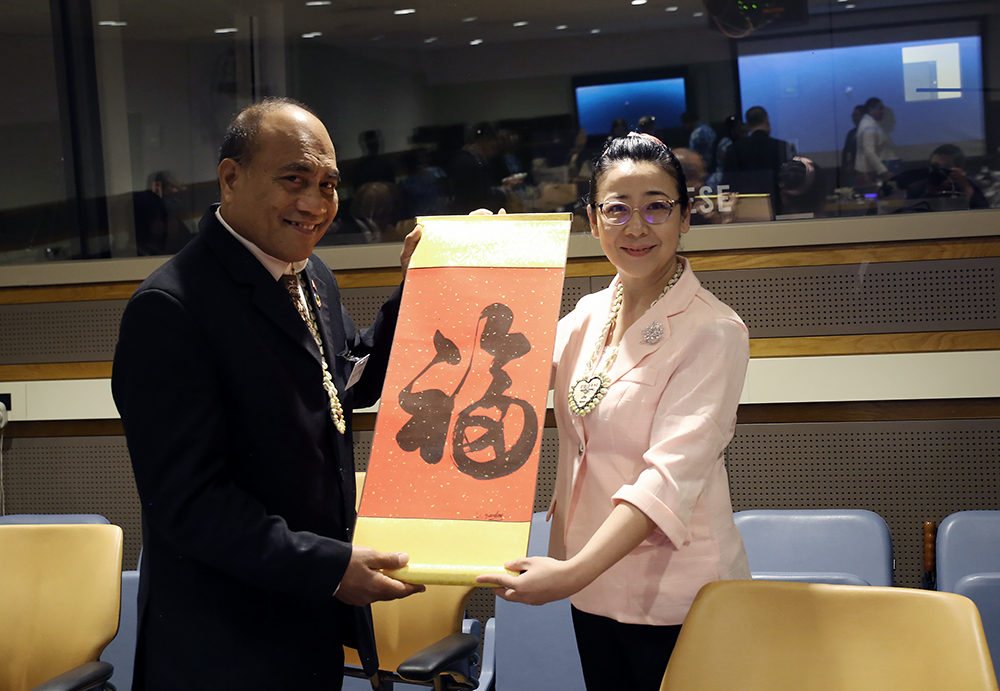
CONTACT
Christian Ledwell | cledwell@iisd.ca
MORE INFORMATION
-->